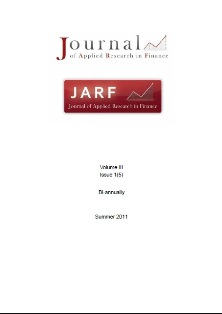THE MACROECONOMIC VARIABLES AND STOCK RETURNS IN PAKISTAN: THE CASE OF KSE100 INDEX
THE MACROECONOMIC VARIABLES AND STOCK RETURNS IN PAKISTAN: THE CASE OF KSE100 INDEX
Author(s): Hussain Zakir, Nadeem SohailSubject(s): Economy
Published by: Reprograph
Keywords: stock returns; cointegration; macroeconomic variables; variance decompositions; VECM
Summary/Abstract: The stock market is a barometer of a country’s economy. The stock market of Pakistan was initiated in the year 1947 at Karachi and KSE100 index was introduced in 1991. The intent of this study was to explore long run, and short run dynamics relationships between KSE100 index and five macroeconomic variables. In order to investigate the long run and short run relationships. Johansen cointegation technique and VECM was applied. The study used monthly data for analyzing KSE100 index. The results revealed that in the long run, there was a positive impact of inflation, GDP growth, and exchange rate on KSE100 index, while money supply and three months treasury bills rate had negative impact on the stock returns. The VECM demonstrated that it takes more than four months for the adjustment of disequilibrium of the previous period. The results of variance decompositions exposed that among the macroeconomic variables inflation explained more variance of forecast error.
Journal: Journal of Applied Research in Finance (JARF)
- Issue Year: III/2011
- Issue No: 05
- Page Range: 76-84
- Page Count: 9
- Language: English

